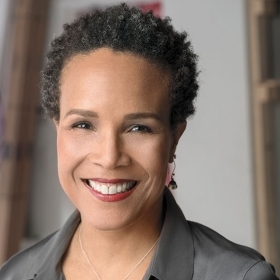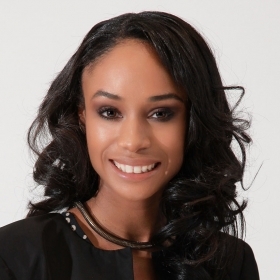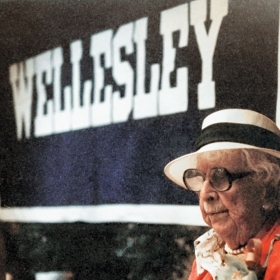Photo by Richard Howard
As hurricanes and wildfires ravaged the U.S. in 2017—the costliest year on record for natural disasters—Ophera Davis, lecturer in Africana Studies, sat glued to her TV screen. She watched women in Texas flee their flooded homes in boats, and evacuees in California return to their neighborhoods to find their houses had burned to the ground.
For Davis, an interdisciplinary social scientist and disaster scholar, the images were a powerful reminder of the continued dearth of research on women and disasters, their preparedness, response, and recovery. Davis began to fill that gap 13 years ago after Hurricane Katrina hit the southeastern U.S. A native Mississippian, Davis flew home to interview black women on the Mississippi Gulf Coast who survived the storm.
She’s since published journal articles on the topic—one appeared in the Harvard Journal of African-American Public Policy—has given talks around the world, and is currently shopping around a manuscript that brings forth these voices through a longitudinal study based in womanist and narrative theories.
“The voices of women prior to, during, and after disasters need to be heard,” Davis says. “And the voices of black women, especially, they’re so rarely studied.”
Davis’ research is unique in its focus on college-educated, professional black women from Mississippi; the majority of post-Katrina research looks at low-income black women in New Orleans. Davis interviewed women multiple times, most recently in 2016, to see how they fared. “I’ve watched them slowly, but surely, recover to the lifestyle they had prior to Katrina,” she said.
Her background in counseling and teaching race relations helps inform her work. At Wellesley since 2004, Davis has taught myriad interdepartmental courses including Race Relations and Racial Inequality in the U.S., and Women in the Workplace. Most recently, she’s designed a course called Women and Disasters.
Davis is hopeful that studies such as hers will inform policy and improve planning to help women fare better during future disasters. “Women are 14 times more likely [than men] to die after disasters,” she said. “There are policy decisions that can be made to lower that number.”
Today, most of the Mississippi women she interviewed have new homes. One turned down her company’s offer to relocate her when it closed its local office, choosing instead to stay and help her community recover. The experience changed the woman’s entire perspective, Davis says. Since then, she accepted another six-figure job.
After the storm, “there’s good news,” Davis says. “There’s resilience, and there’s recovery.”







We ask that those who engage in Wellesley magazine's online community act with honesty, integrity, and respect. (Remember the honor code, alums?) We reserve the right to remove comments by impersonators or comments that are not civil and relevant to the subject at hand. By posting here, you are permitting Wellesley magazine to edit and republish your comment in all media. Please remember that all posts are public.